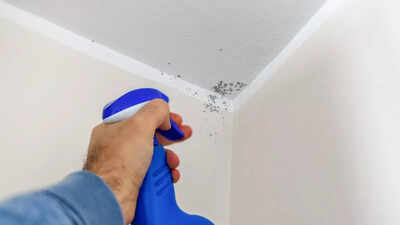ARTICLE AD BOX

When pests invade, most people resort to expensive sprays or professional exterminators. But there’s a budget-friendly solution already sitting in your medicine cabinet: rubbing alcohol (isopropyl alcohol).
Known mainly as a disinfectant, this common household item doubles as a quick and effective pest control option. From bed bugs to ants, rubbing alcohol can kill or repel many unwanted intruders when applied directly. While it isn’t a long-term cure and requires safe handling, it offers an easy first line of defence. With careful use, you can protect your home from pests without relying on harsh chemical treatments.
How to use rubbing alcohol to kill pests safely and affordably
Bed Bugs, Stink Bugs, and Roaches

Rubbing alcohol works best when it comes into direct contact with pests. For bugs such as bed bugs, stink bugs, and roaches, it dehydrates their exoskeletons and kills them quickly. A simple spray can be made by mixing equal parts rubbing alcohol and water in a bottle.For severe infestations, some people use undiluted rubbing alcohol, but this should be done with care to avoid damaging surfaces. While it offers instant results, this method is short-term—it won’t eliminate eggs or prevent new infestations, but it can reduce numbers immediately.
Houseplant Pests: Aphids, Mealybugs, and Spider Mites

Indoor gardeners often struggle with tiny pests like aphids, mealybugs, and spider mites, which damage leaves and weaken plants. Rubbing alcohol provides a quick way to kill them. A diluted spray applied directly onto affected leaves dehydrates and destroys these insects.However, not all plants tolerate alcohol well. To avoid harming your greenery, test the mixture on a small section first. After a few minutes, rinse the plant with plain water to remove residue.
This approach is best for small infestations and offers plant lovers a chemical-free alternative to store-bought pesticides.
Ants

Ants are persistent invaders that enter homes in search of food. While rubbing alcohol may not wipe out an entire colony, it helps disrupt the chemical trails that ants use to follow one another. Spraying a mix of rubbing alcohol, water, and a few drops of lemon or peppermint oil on counters and entry points makes it harder for ants to regroup.This method also leaves behind a fresh scent. Since ants are quick to adapt, reapplication is necessary, but it provides a simple and affordable way to keep them out of kitchens and pantries.
Spiders

Although spiders can be helpful by eating other insects, most people prefer not to have them indoors. They dislike strong scents, which makes rubbing alcohol a useful base for essential-oil sprays. When combined with oils such as peppermint, eucalyptus, or lavender, it creates a repellent that spiders avoid.Spraying corners, windowsills, and doorways can discourage spiders from spinning webs inside. Vinegar and water can also be used, but adding rubbing alcohol helps blend the oils more effectively. While it doesn’t kill spiders directly, it helps keep them out of sight.
Rodents

Rubbing alcohol is not poisonous to rodents, but it can help deter them when mixed with strong essential oils like mint or eucalyptus. These scents overwhelm their sensitive noses, making treated areas less appealing.
A spray of water, rubbing alcohol, and oil can be applied around cupboards, baseboards, and storage areas where rodents are likely to enter.In this case, the alcohol serves mainly as an emulsifier, ensuring the oils spread evenly in the mixture. The deterrent is temporary, so frequent reapplication is needed. While it won’t solve a large infestation, it can act as a short-term barrier.
Silverfish

Silverfish are sneaky pests that thrive in damp, dark areas like bathrooms and basements.
They can damage books, wallpaper, and stored fabrics. Spraying rubbing alcohol directly on these pests kills them on contact by drying out their bodies.Targeting hiding spots with a diluted mixture can help reduce their numbers. To keep them away long-term, it’s also important to control humidity levels and seal cracks where they hide. When combined with these preventive measures, rubbing alcohol becomes a useful tool against silverfish.Rubbing alcohol is a surprisingly versatile household product that offers quick and affordable relief from pests. From killing bugs on contact to acting as a carrier for natural repellents, it provides homeowners with a handy alternative to chemical-heavy solutions.However, it is best seen as a temporary fix. Because it only works on direct contact or needs frequent reapplication, it should be combined with good home maintenance, keeping surfaces clean, sealing cracks, reducing moisture, and storing food properly. Used wisely, rubbing alcohol can be an effective first line of defence against unwanted pests without the cost of professional treatments.Also Read: 10 garden plants that flourish with baking soda: Fights fungi, boosts colour, and repels pests



.png)
.png)
.png)
















 2 hours ago
3
2 hours ago
3








 English (US) ·
English (US) ·